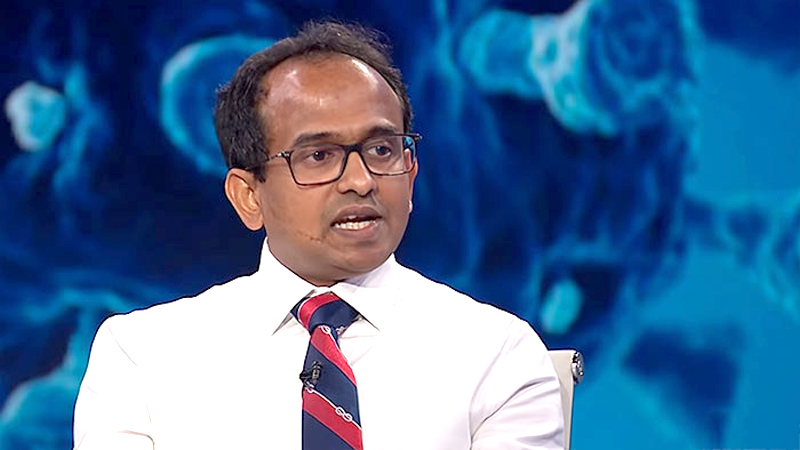University of Sri Jayewardenepura Allergy Immunology and Cell Biology Unit Director Dr. Chandima Jeewandara said that the recent outbreak of respiratory diseases in China caused by the Human Metapneumovirus (HMPV) is neither a new virus nor a pandemic threat, despite an increase in respiratory infections.
Sharing his insights on the social media platform X yesterday, Dr. Jeewandara said that seasonal spikes in infections, such as those currently observed in China, are to be expected as people readjust to common pathogens following the Covid-19 lockdowns.
While some social media posts have exaggerated the situation by describing it as a crisis, Chinese authorities and the World Health Organization (WHO) have not declared any state of emergency.
The Chinese Government has said the outbreak is a ‘Winter occurence’ and there is no cause for alarm. China’s Foreign Ministry spokesperson Mao Ning said on Friday that “Respiratory infections tend to peak during the winter season”.
Reassuring citizens and tourists, she said, “I can assure you that the Chinese Government cares about the health of Chinese citizens and foreigners coming to China,” adding, “It is safe to travel in China.”
Dr. Jeewandara said that routine testing for HMPV is unnecessary unless symptoms are severe or there is an outbreak. Dr. Jeewandara said that if required the Allergy, Immunology, and Cell Biology Unit at the University of Sri Jayewardenepura is equipped with the reagents to test for HMPV.
“HMPV infections usually resolve within a week,” he said, adding that young children, older adults, and those with pre-existing health conditions should remain vigilant. He also stressed the importance of preventive measures to minimise the risk of infection.
Dr Jeewandara said that wearing masks is not necessary unless a person is experiencing symptoms of a respiratory illness.
Discovered in 2001, HMPV is a well-known virus that typically causes respiratory infections with symptoms resembling a common cold or flu. Symptoms include a cough, runny or stuffy nose, fever, and sore throat. In more severe cases, it can lead to wheezing or shortness of breath, which may escalate to bronchitis or pneumonia, particularly in vulnerable groups such as children, the elderly, and those with weakened immune systems.
He said, however, as there is currently no specific antiviral treatment or vaccine for the virus, treatment is focused on managing symptoms. Preventive measures, such as frequent hand washing and staying home when feeling unwell, remain the most effective ways to check the spread of HMPV.






